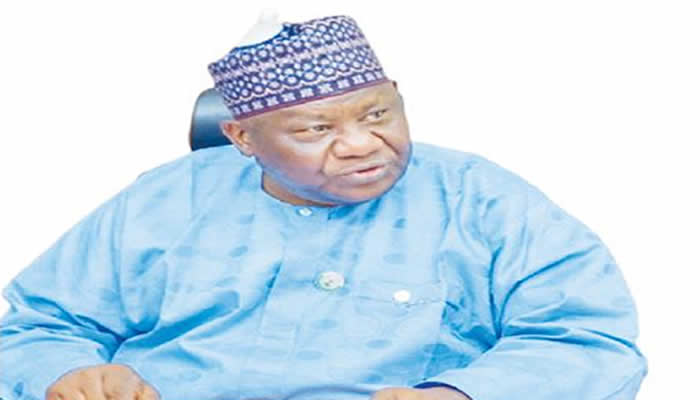Paragraph 1: The Genesis and Scope of Public Service Reforms in Nigeria
Nigeria’s journey towards a more efficient and effective public service has been marked by a series of reforms, with the Bureau of Public Service Reforms (BPSR) playing a pivotal role since its inception in 2004. The BPSR’s mandate encompasses initiating, driving, monitoring, and evaluating reforms across all Ministries, Departments, and Agencies (MDAs) of the government. This mandate stems partly from international pressures, such as the conditions attached to debt relief by international creditors, and partly from a recognized internal need to modernize and improve governance. Unlike previous reform efforts, often based on borrowed models, the current National Strategy on Public Service Reforms is a homegrown document, developed collaboratively with stakeholders across Nigerian society. This strategy is structured around four key pillars: governance environment, national development plans, public financial management, and civil service administration and management.
Paragraph 2: Strengthening Governance and Aligning with National Development Goals
The first two pillars of the National Strategy on Public Service Reforms address the foundational elements of good governance and developmental progress. Pillar one focuses on enhancing transparency and accountability within the governance environment, encompassing the fight against corruption through both preventative and punitive measures. This involves collaboration with various agencies, including the Office of the Secretary to the Government. Pillar two emphasizes the crucial link between public service reforms and national development plans. The BPSR played a vital role in developing these plans, which include Key Performance Indicators (KPIs) and roadmaps to track progress. This emphasis on measurable outcomes and data-driven decision-making represents a significant step forward in ensuring that public service reforms contribute directly to national development objectives.
Paragraph 3: Modernizing Public Financial Management through Technology
The third pillar centers on the modernization of public financial management, leveraging technology to enhance transparency and efficiency. Key initiatives like the Integrated Personnel and Payroll Information System (IPPIS), the Treasury Single Account (TSA), and the Bank Verification Number (BVN) have been instrumental in achieving these goals. The IPPIS has streamlined payroll management, eliminating ghost workers and fraudulent alterations of personnel data. The TSA has consolidated government revenue into a single account, improving tracking and management. These technological advancements have not only reduced the cost of governance but also fostered greater engagement with non-government actors by streamlining procurement processes and ensuring tax compliance for contractors and suppliers.
Paragraph 4: Transforming Civil Service Administration and Embracing Digitalization
The fourth pillar concentrates on the human capital within the civil service, recognizing that a skilled and motivated workforce is essential for effective public service delivery. The BPSR, in conjunction with the Office of the Head of Civil Service of the Federation, has implemented performance management systems, succession planning, and mentorship programs to strengthen the capacity of civil servants. This shift towards performance-based accountability replaces the outdated culture of mere attendance, ensuring that civil and public servants are evaluated based on their contributions to achieving MDAs’ KPIs. Furthermore, the drive towards digitalizing the public service, spurred by the COVID-19 pandemic, aims to create a paperless environment by 2030, promoting efficiency and transparency.
Paragraph 5: Addressing Challenges and Promoting Collaboration in Reform Implementation
Despite significant progress, challenges remain in implementing these reforms. Resistance to change, institutional rivalries, and funding constraints have hindered progress. The BPSR, however, remains committed to overcoming these obstacles through persistent engagement, collaboration, and leveraging the support of the government’s leadership. The BPSR’s efforts to build consensus among MDAs, foster a shared understanding of reform objectives, and secure buy-in from all stakeholders are crucial for the successful implementation of the national strategy. Continued engagement with development partners is also seen as vital for securing the necessary resources and expertise to support the ongoing reform process.
Paragraph 6: Looking Ahead: Expanding the Reach of Reforms and Fostering Citizen Engagement
The vision for the future of Nigeria’s public service is ambitious: to rank among the top 20 in the world. This involves identifying and supporting "building blocks" – MDAs that have achieved world-class standards – and promoting the widespread adoption of best practices. The BPSR recognizes the need to deepen digital literacy within the public sector, partnering with organizations like NITDA to provide training and enhance digital skills. Expanding the reforms beyond the federal level to encompass state and local governments is seen as a critical next step. Furthermore, engaging citizens through initiatives like the scorecard program, which assesses the online performance of MDAs, is crucial for ensuring that public services meet the needs and expectations of the people they serve. This commitment to citizen engagement, coupled with ongoing capacity development programs and collaboration with international partners, underscores the government’s dedication to creating a truly modern and responsive public service that effectively serves the needs of all Nigerians.


